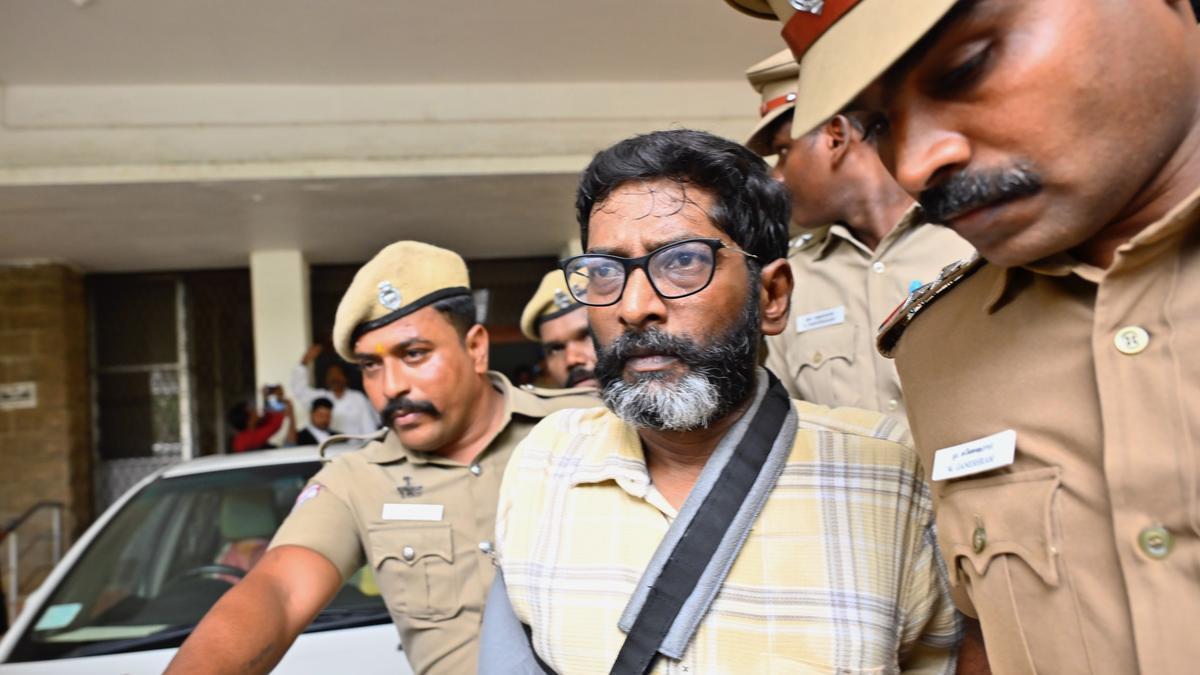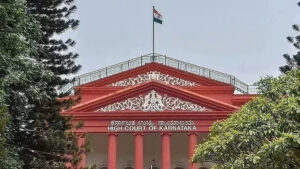In a significant development that underscores the ongoing debate around free speech and state power in India, the Supreme Court recently stayed any coercive action by the Tamil Nadu Police against A. Shankar, popularly known as ‘Savukku’ Shankar. The case, which has drawn widespread attention, raises important questions about the limits of free expression, the role of social media in contemporary discourse, and the state’s responsibility in balancing law enforcement with the protection of individual rights.
Who is ‘Savukku’ Shankar?
‘Savukku’ Shankar is a well-known political commentator and former employee of the Tamil Nadu Vigilance Department. He gained notoriety for his outspoken and often controversial views on social media, particularly through his blog and Twitter account. Shankar has built a substantial following by exposing alleged corruption and malpractices within the Tamil Nadu government and various institutions.
Known for his biting satire and fearless critique of those in power, Shankar’s posts have frequently ruffled feathers, leading to legal troubles. His style of commentary, which often involves personal attacks and unfiltered opinions, has made him a polarizing figure—celebrated by some for his courage and criticized by others for his perceived lack of restraint.
The Legal Battle: Tamil Nadu Police vs. Savukku Shankar
The legal tussle between Shankar and the Tamil Nadu Police has been ongoing for some time. The police have accused him of spreading misinformation, inciting public unrest, and defaming government officials. In response to his online posts, several cases have been filed against him, leading to multiple investigations and potential legal action.
In a recent move, the Tamil Nadu Police sought to take coercive steps against Shankar, including arresting him under various sections of the Indian Penal Code (IPC) that deal with defamation, criminal intimidation, and promoting enmity between different groups. Shankar, however, argued that these actions were an attempt to stifle his freedom of speech and expression, guaranteed under Article 19(1)(a) of the Indian Constitution.
Fearing arrest and further harassment, Shankar approached the Supreme Court, seeking protection from what he termed as “vindictive action” by the state authorities.
The Supreme Court’s Intervention
In a crucial interim order, the Supreme Court stayed the Tamil Nadu Police from taking any coercive action against Shankar. The Court’s decision was based on the argument that freedom of speech, while not absolute, is a fundamental right that must be protected against arbitrary state action. The Court noted that criticism of the government and public officials, even when harsh, is part of the democratic process and should not be suppressed unless it crosses the line into criminal conduct.
The Court’s stay order has been hailed by free speech advocates as a victory for civil liberties. It emphasizes the need for a cautious approach when dealing with cases involving the expression of opinions, especially in a democracy where dissent and debate are crucial to governance.
Implications for Free Speech in India
The Supreme Court’s decision in Shankar’s case is a significant moment in the broader conversation about free speech in India. The country has seen an increasing number of cases where individuals, particularly activists, journalists, and social media users, have been targeted for their critical views. The use of laws like sedition, defamation, and the IT Act to curb dissent has raised concerns about the shrinking space for free expression.
Shankar’s case highlights the tension between the right to free speech and the state’s responsibility to maintain public order. While there is a legitimate need to regulate speech that incites violence or spreads misinformation, there is also a danger that these powers can be misused to silence dissent and criticism. The Supreme Court’s stay suggests that the judiciary remains a crucial check on potential abuses of power by the state.
The Role of Social Media in Shaping Public Discourse
Shankar’s prominence as a commentator largely stems from his active presence on social media, a platform that has transformed how political discourse is conducted in India. Social media allows for real-time commentary, the rapid spread of ideas, and the mobilization of public opinion. However, it also presents challenges, including the spread of fake news, hate speech, and the potential for online harassment.
The case of ‘Savukku’ Shankar illustrates the double-edged nature of social media. On one hand, it empowers individuals to speak truth to power; on the other, it can lead to legal and personal consequences for those who push the boundaries of acceptable discourse. As social media continues to evolve, so too will the legal and societal frameworks that govern it.
Sponsored
FACTS Transcripts
Apply for a University document anywhere
https://www.factstranscript.com
Quick Transcripts for popular Universities, check your University name now and get started. We help you to get your transcript application online which is accepted for use of IRCC.
No DD, NO Paperwork. 100% Authentic, Reliable.
FACTS Transcripts Charges · Reviews · Assam Universities · Home · Know your University









